
Find Help
More Items From Ergsy search
-

Can antibiotics treat norovirus?
Relevance: 100%
-
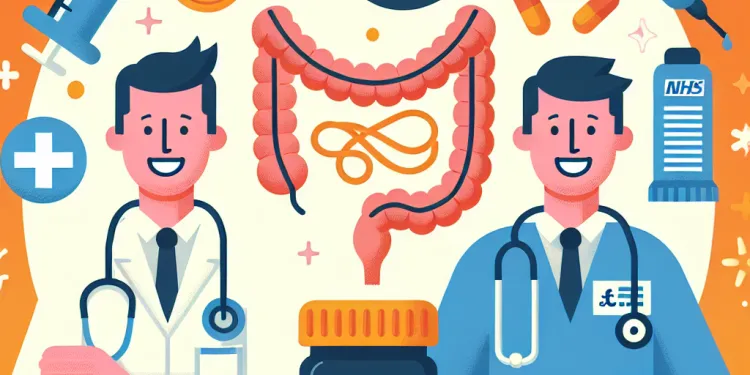
Can appendicitis be treated with antibiotics?
Relevance: 57%
-

What antibiotics are used to treat gonorrhoea?
Relevance: 51%
-

How effective are antibiotics in treating Lyme disease?
Relevance: 51%
-

Is there a vaccine for norovirus?
Relevance: 50%
-
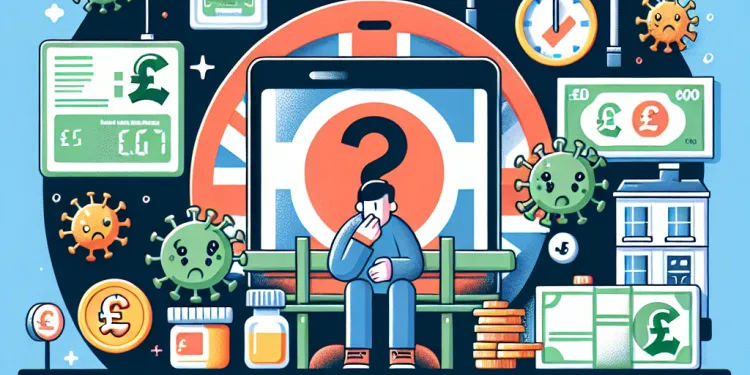
What should I do if I have norovirus?
Relevance: 50%
-

How is norovirus spread?
Relevance: 48%
-
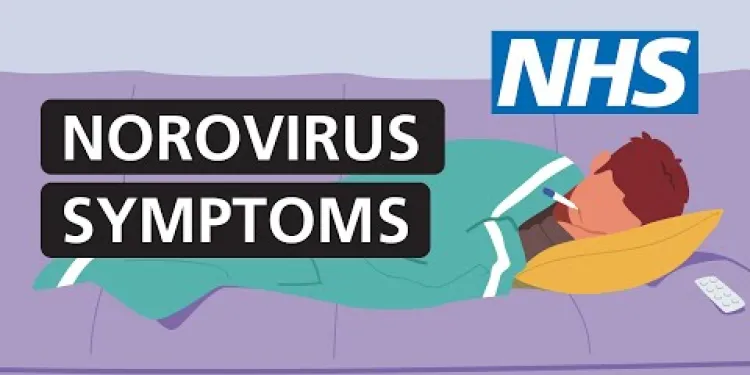
What is norovirus? (Diarrhoea and vomiting bug) | NHS
Relevance: 47%
-

How common is norovirus in the UK?
Relevance: 47%
-

What are the symptoms of norovirus?
Relevance: 47%
-

Antibiotics and You: An introduction to antibiotic resistant infections
Relevance: 46%
-
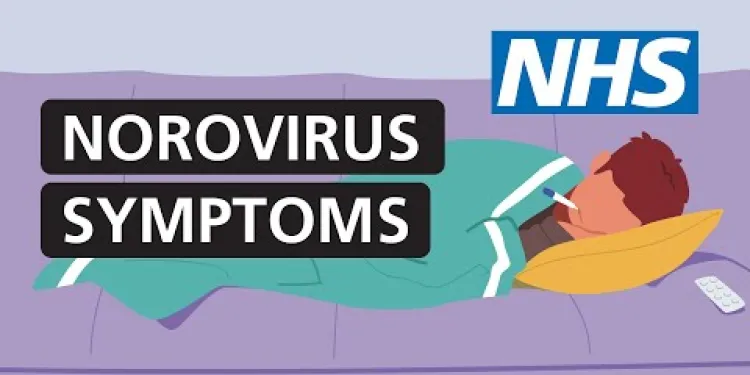
What is norovirus? (Diarrhoea and vomiting bug) | NHS
Relevance: 45%
-

How can I prevent norovirus infection?
Relevance: 43%
-

How long do norovirus symptoms last?
Relevance: 43%
-

Is it bad to take antibiotics?
Relevance: 43%
-

Can I get norovirus more than once?
Relevance: 42%
-
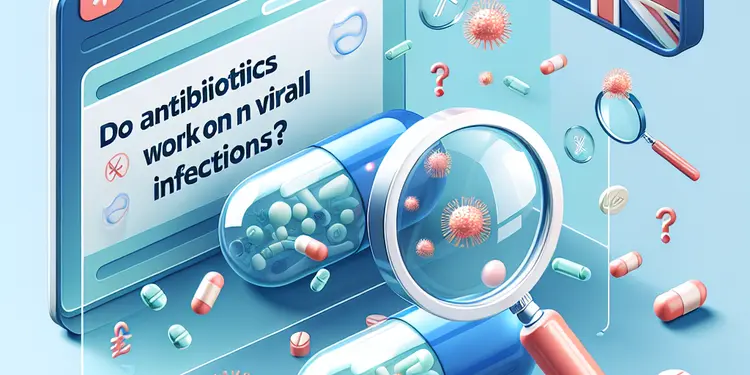
Do antibiotics work on viral infections?
Relevance: 42%
-
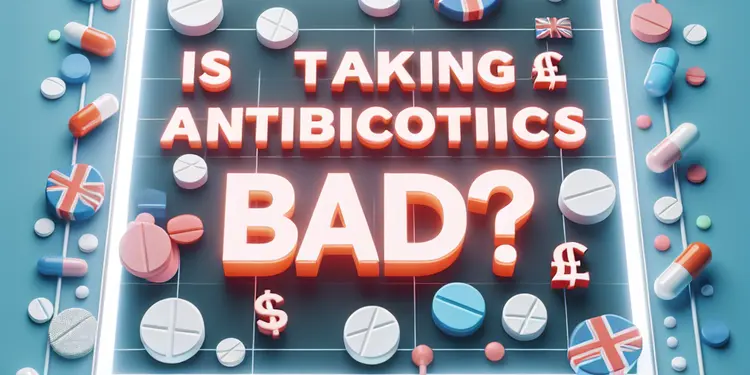
Is taking antibiotics always bad?
Relevance: 42%
-

What is antibiotic resistance?
Relevance: 42%
-

Where can I find more information about norovirus?
Relevance: 41%
-

Can I go to work or school if I have norovirus?
Relevance: 41%
-

When should I seek medical advice for norovirus?
Relevance: 41%
-
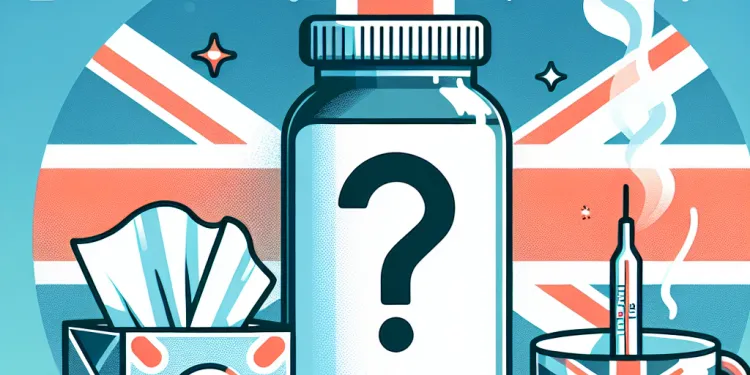
Can I take antibiotics for a cold?
Relevance: 40%
-

Can taking antibiotics be harmful?
Relevance: 39%
-

Why is antibiotic resistance a problem?
Relevance: 39%
-
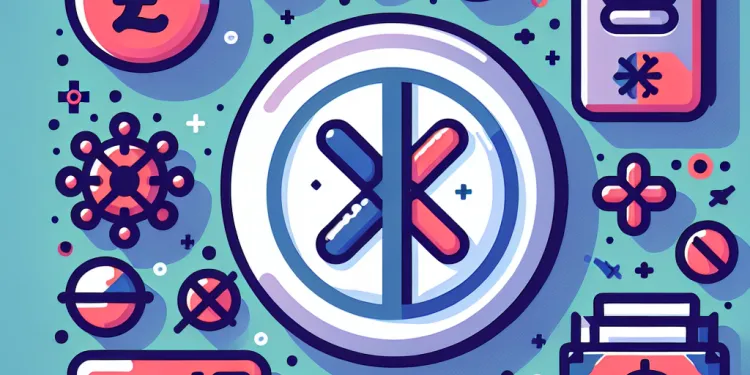
Why is antibiotic resistance a concern with gonorrhoea?
Relevance: 38%
-
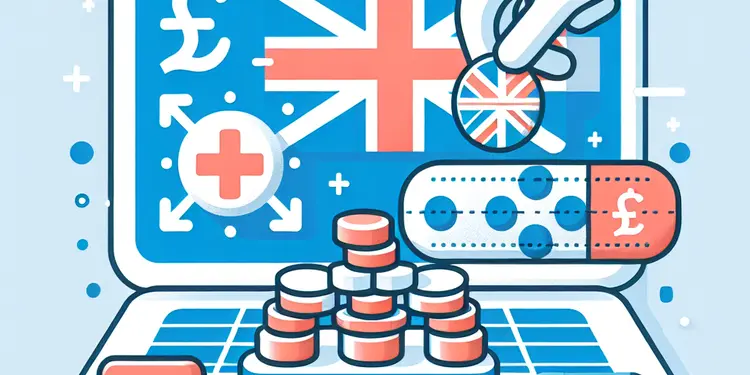
Should I stop taking antibiotics if I feel better?
Relevance: 37%
-

What types of antibiotics are typically used to treat Lyme disease?
Relevance: 37%
-

Can taking antibiotics frequently cause resistance?
Relevance: 37%
-

What are common side effects of antibiotics?
Relevance: 36%
-
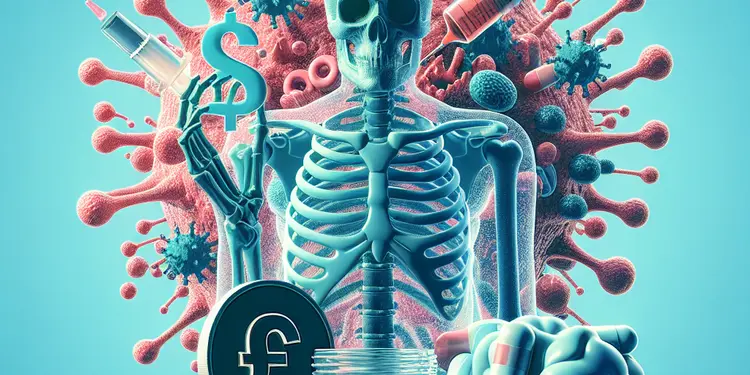
Can antibiotics alone cure flesh-eating disease?
Relevance: 36%
-
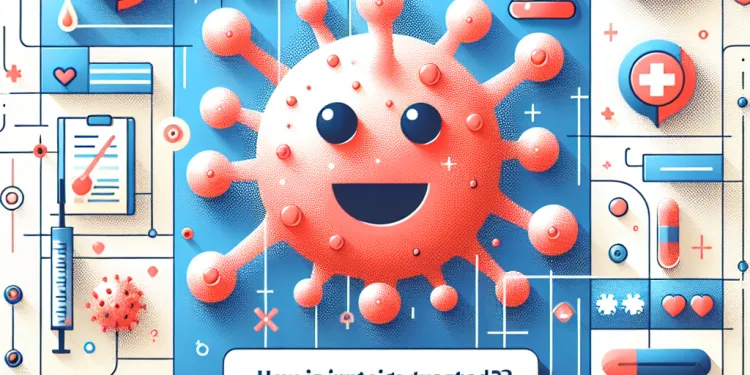
How is impetigo treated?
Relevance: 35%
-
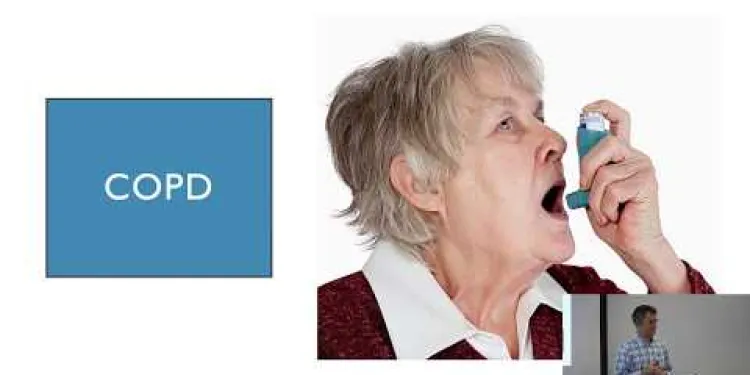
Acute COPD in Adults: Antibiotics or not - Dr Nick Francis
Relevance: 35%
-

Can Lyme disease be treated?
Relevance: 35%
-

What should I eat or drink if I have norovirus?
Relevance: 35%
-
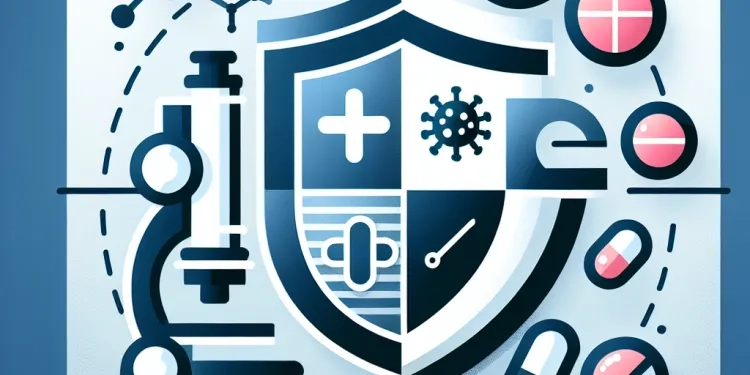
Can the bubonic plague become resistant to antibiotics?
Relevance: 34%
-

2 episodes of cellulitis and been given antibiotics but the redness doesn't seem to be improving?
Relevance: 33%
-
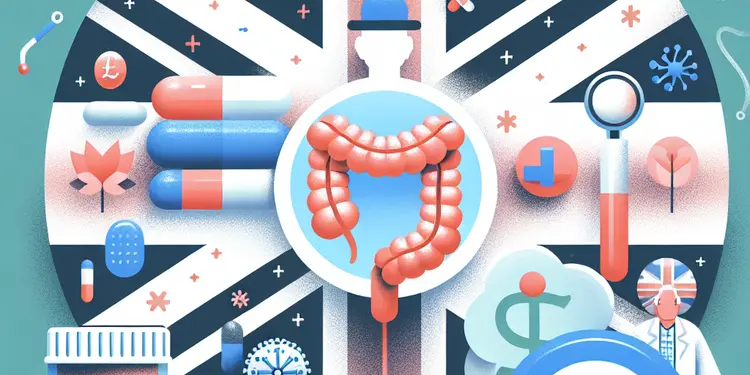
How do antibiotics affect gut health, especially in older adults?
Relevance: 33%
-

How can the bubonic plague be treated?
Relevance: 32%
-

Efforts to Combat Antibiotic Resistance Gain Momentum with New Research Initiatives
Relevance: 31%
Understanding Norovirus
Norovirus, often referred to as the "winter vomiting bug," is a highly contagious virus that causes gastroenteritis, an inflammation of the stomach and intestines. Common symptoms include nausea, vomiting, diarrhea, and abdominal pain. Although norovirus outbreaks are more prevalent during the winter months, infections can occur at any time of the year. The virus is notorious for spreading rapidly in closed and crowded environments such as schools, hospitals, and cruise ships.
How Norovirus Spreads
The spread of norovirus typically occurs through direct contact with an infected individual, consumption of contaminated food or water, or touching surfaces or objects contaminated with the virus. It is remarkably resilient and can survive on surfaces for extended periods. Therefore, maintaining hygiene and proper sanitation, particularly handwashing, is crucial in preventing its spread.
Why Antibiotics Are Not Effective
Antibiotics are medications designed to treat bacterial infections by either killing bacteria or preventing their growth. However, norovirus is not a bacterial infection; it is a viral one. Viruses have a different structure and replication method compared to bacteria, making antibiotics ineffective against them. Therefore, taking antibiotics will not help in treating a norovirus infection and could potentially contribute to antibiotic resistance.
Treatment and Management of Norovirus
Currently, there is no specific antiviral treatment for norovirus. The primary approach is supportive care to manage symptoms and prevent dehydration. This includes drinking plenty of fluids to replace fluids lost through vomiting and diarrhea, and consuming oral rehydration solutions if necessary. In severe cases, particularly for vulnerable groups like young children, the elderly, or those with compromised immune systems, medical attention may be required.
Preventing Norovirus Infection
Preventing the spread of norovirus involves several key practices. Regular and thorough handwashing with soap and water, especially after using the toilet and before eating, is paramount. Surfaces should be cleaned and disinfected frequently, especially in shared spaces. Foods should be washed thoroughly and cooked properly before consumption. If you are infected, it is important to isolate yourself and avoid preparing food for others to prevent further spread of the virus.
Conclusion
Antibiotics are not effective in treating norovirus as it is a viral infection. Proper hygiene and supportive care are the best methods for managing and recovering from norovirus. Awareness and understanding of how norovirus spreads and how to prevent it are essential in minimizing outbreaks and protecting public health.
Understanding Norovirus
Norovirus, also called the "winter vomiting bug," is a virus that makes you feel very sick. It causes your stomach and intestines to get inflamed, which can make you feel nausea, vomit, have diarrhea, or get a tummy ache. People often get it in the winter, but you can catch it any time. Norovirus spreads fast, especially in places like schools, hospitals, and cruise ships where lots of people are close together.
How Norovirus Spreads
You can catch norovirus from touching a sick person, eating food or drinking water that's not clean, or touching things with the virus on them. It’s a tough virus and can stay on things for a long time. To stop the spread, wash your hands well with soap and keep things clean.
Why Antibiotics Are Not Effective
Antibiotics are medicines that kill bacteria, not viruses. Norovirus is a virus, so these medicines don’t work on it. Using antibiotics when you don't need them can make them less useful for when you really need them later.
Treatment and Management of Norovirus
There is no special medicine to cure norovirus. You can take care of yourself by drinking lots of water to stay hydrated because you lose water when you vomit or have diarrhea. You might need oral rehydration solutions to help too. Some people, like young children and older adults, might need to see a doctor if they get very sick.
Preventing Norovirus Infection
To stop norovirus from spreading, wash your hands often with soap and water, especially after using the bathroom and before you eat. Clean surfaces often, especially where many people are. Wash food well and cook it properly. If you are sick, stay away from others and don't make food for them.
Conclusion
Antibiotics won't help with norovirus because it's a virus. Keeping clean and taking care of yourself can help you recover. Knowing how norovirus spreads and how to stop it can keep you and others safe.
Frequently Asked Questions
Can antibiotics treat norovirus?
No, antibiotics cannot treat norovirus because it is a virus, and antibiotics are only effective against bacterial infections.
Why don't antibiotics work on norovirus?
Antibiotics target bacteria, not viruses. Norovirus is a viral infection, so antibiotics are ineffective.
What type of medication can treat norovirus?
There is no specific medication to treat norovirus. Treatment focuses on relieving symptoms and preventing dehydration.
How is norovirus usually treated?
Norovirus treatment primarily involves staying hydrated by drinking plenty of fluids and resting.
Can antiviral drugs treat norovirus?
Currently, there are no antiviral drugs approved for treating norovirus.
What should I do if I have norovirus?
If you have norovirus, drink fluids to prevent dehydration, rest, and practice good hygiene to avoid spreading the virus.
How long do norovirus symptoms last?
Norovirus symptoms typically last for 1 to 3 days.
Can norovirus lead to serious health complications?
Norovirus can lead to dehydration, especially in young children and older adults, so it's important to stay hydrated.
Is there a vaccine for norovirus?
Currently, there is no vaccine available for norovirus.
How can norovirus be prevented?
Prevent norovirus by washing hands thoroughly, disinfecting surfaces, and avoiding contaminated food and water.
What are common symptoms of norovirus?
Common symptoms of norovirus include nausea, vomiting, diarrhea, and stomach cramps.
How is norovirus diagnosed?
Norovirus is usually diagnosed based on symptoms. Sometimes a stool sample can confirm the virus.
Can probiotics help with norovirus?
Probiotics might help with maintaining gut health, but they are not a treatment for norovirus.
Is norovirus contagious?
Yes, norovirus is highly contagious and can spread through direct contact, contaminated food or water, and surfaces.
Can you catch norovirus more than once?
Yes, you can catch norovirus multiple times because there are many strains and immunity is not long-lasting.
What foods are commonly associated with norovirus outbreaks?
Foods commonly associated with norovirus include raw shellfish, leafy greens, and fresh fruits.
Can children take antibiotics for norovirus?
No, children should not take antibiotics for norovirus since it is ineffective against the virus.
How quickly can symptoms appear after exposure to norovirus?
Symptoms of norovirus can appear 12 to 48 hours after exposure.
What practices can help during a norovirus outbreak?
During a norovirus outbreak, isolate sick individuals, sanitize surfaces, and promote frequent handwashing.
Is dehydration a risk with norovirus?
Yes, dehydration is a risk with norovirus due to vomiting and diarrhea, and it's important to maintain fluid intake.
Can antibiotics help with norovirus?
No, antibiotics cannot help with norovirus.
Antibiotics only work on germs called bacteria. Norovirus is a bug called a virus. They are different.
If you feel sick with norovirus, you can:
- Rest a lot.
- Drink water or juice to stay hydrated.
- Eat plain foods like bread or rice if you are hungry.
Remember to wash your hands often to stop spreading the bug.
If you need support, you can:
- Ask a friend or family member for help.
- Talk to a nurse or doctor if you feel very sick.
No, antibiotics cannot help if you have norovirus. This is because norovirus is a virus, and antibiotics only work on bacteria.
Why Don't Antibiotics Help with Norovirus?
Antibiotics are medicines that kill bacteria. Norovirus is a type of virus, not a bacteria. That's why antibiotics can't make you better from norovirus.
If you have norovirus, you might feel sick, have stomach pain, or need to go to the bathroom a lot. Rest, drink water, and wash your hands often.
Ask a grown-up or a doctor for help if you need. They can give you advice on how to feel better.
Antibiotics kill bacteria. Antibiotics do not work on viruses. Norovirus is a virus, so antibiotics do not help.
What medicine can help with norovirus?
There is no special medicine to make norovirus go away. To feel better, you should rest and drink lots of water so you don't get too thirsty.
How do you treat norovirus?
Norovirus is a type of germ that makes you feel sick in your tummy. Here is how you can feel better:
- Drink lots of water: This helps keep your body healthy while you get better.
- Eat plain foods: Try simple foods like bread, rice, or bananas.
- Rest your body: Sleep and rest to help your body recover.
- Ask for help: Talk to an adult or doctor if you feel very sick.
To understand more, using pictures or videos can be helpful. Always ask someone you trust if you have questions.
If you get a bug called Norovirus, you need to drink lots of water and rest. This helps you get better.
Can medicine help with norovirus?
Some medicines can help when you're sick.
Doctors say there are no special medicines to stop norovirus.
But, you can still feel better by:
- Drinking lots of water.
- Getting plenty of rest.
- Eating light food.
If you feel very sick, talk to a doctor.
Right now, there are no medicines that can stop or treat the norovirus.
What to Do if You Have Norovirus
Norovirus is a bug that can make you feel sick. Here’s what you can do:
1. Rest: Stay in bed and rest. It helps you get better.
2. Drink Fluids: Drink lots of water or juice. This stops you from getting too dry.
3. Wash Your Hands: Wash hands with soap and water. This helps stop the bug from spreading.
4. Eat Light Foods: Try to eat small, easy snacks when you feel better.
If you feel very sick, talk to a grown-up or call a doctor. They can help you.
Tip: Use a phone alarm to remember when to drink water.
If you have norovirus (a tummy bug), do these things:
- Drink lots of water so you don't get too thirsty.
- Get plenty of rest to help your body feel better.
- Wash your hands often and keep clean. This stops you from giving the bug to other people.
If you need help:
- Use a timer to remind you to drink water.
- Ask someone to help you if you feel too tired.
- Watch a handwashing video to learn how to wash your hands well.
How long do you feel sick with norovirus?
Norovirus makes people sick for 1 to 3 days.
Can norovirus cause big health problems?
Norovirus is a germ that makes people sick with a tummy bug. It usually goes away in a few days. But sometimes, it can be more serious.
Here are some things that can help if you have norovirus:
- Drink lots of water to stay hydrated.
- Get plenty of rest.
- Tell a doctor if you feel very sick.
Look after yourself, and ask someone you trust for help if you need it.
Norovirus can make you lose too much water. This happens a lot to young kids and older people. It's very important to drink enough water to stay healthy.
Is there a vaccine for norovirus?
No, there is no vaccine for norovirus. You can help stop norovirus by washing your hands often with soap and water. If you feel sick, tell a grown-up so they can help you.
Right now, there is no shot to stop the norovirus.
How to Stop Norovirus from Spreading?
Norovirus is a bug that makes you sick. Here's how to stop it:
- Wash Hands: Clean your hands with soap and water often.
- Clean Surfaces: Use cleaners to wipe surfaces, like tables and doorknobs.
- Wash Fruits and Veggies: Rinse them before eating.
- Cook Food Well: Make sure food, especially seafood, is cooked all the way.
- Stay Home: If you feel sick, stay home and rest.
These tips help keep norovirus away.
To stop norovirus, wash your hands really well. Clean surfaces that are dirty. Stay away from food and water that might make you sick.
What signs show you might have norovirus?
People who get sick from norovirus often feel like they want to throw up, or they do throw up. They might also have runny poo (diarrhea) and tummy aches.
How do doctors know if someone has norovirus?
Doctors can find out if you have norovirus by asking about your symptoms. Symptoms mean how you feel, like if your tummy hurts or if you feel sick.
Sometimes, doctors might need to test a sample of your poo to be sure. This means they check what comes out when you go to the toilet.
You can draw a picture or write down how you feel each day. This can help you remember details to tell the doctor.
Doctors usually can tell if someone has norovirus by looking at their symptoms. Sometimes, they can also use a poop sample to check for the virus.
Do probiotics help when you have norovirus?
Norovirus is a virus that makes you feel very sick. You might vomit or have diarrhea. It is easy to catch norovirus from others.
Probiotics are good bacteria that live in your tummy. They can help keep your tummy healthy.
Some people believe probiotics can help you feel better when you have norovirus. But scientists are still studying this to know for sure.
If you are sick with norovirus, it is important to rest and drink water. Drinking water helps you stay strong and stops you from feeling too weak.
It is also a good idea to talk to a doctor or nurse. They can give you the best advice to help you feel better.
There are tools that can help you read and understand better:
- Text-to-Speech Tools: These read words out loud to you. This can help if you find reading hard.
- Picture Helpers: Look for books or websites that use pictures. Pictures can help explain the words.
Remember, you can always ask someone you trust for help if you don’t understand something.
Probiotics can be good for your tummy, but they do not cure norovirus.
Can you catch norovirus from someone?
Yes, you can catch norovirus from someone. This virus spreads very easily.
Here are some tips to stay safe:
- Wash your hands with soap and water often.
- Do not share food and drinks with others.
- Clean and sanitize surfaces regularly.
Yes, norovirus spreads very easily. It can spread when you touch someone who has it, eat food or drink water that is not clean, or touch dirty surfaces.
Can you get norovirus again?
You can catch norovirus more than once. It is a virus that makes you feel sick. Norovirus changes, so your body might not recognize it if it comes back.
Here are some ways to help you understand and stay safe:
- Wash your hands: Wash with soap and water often. This helps stop germs.
- Rest and drink water: If you get sick, rest and drink plenty of water.
- Ask for help: If you feel unsure, ask someone you trust for help.
- Use simple words: Try using simple words or stories to learn more about norovirus.
Yes, you can get norovirus more than once. This is because there are many types of norovirus, and your body doesn't stay protected from it for a long time.
What foods can give you norovirus?
Norovirus is a germ that can make you sick. It often spreads through food. Here are some foods to watch out for:
- Raw fruits and vegetables: They might carry germs if not washed well.
- Shellfish: Like oysters and mussels, especially when eaten raw.
- Prepared foods: Like salads and sandwiches if the person making them didn't wash their hands.
To stay safe:
- Wash fruits and vegetables before eating.
- Cook shellfish well before eating.
- Wash your hands before touching food.
These steps can help keep you healthy!
Some foods can make you sick with a bug called norovirus. These foods are:
- Raw shellfish like oysters and clams
- Leafy greens like lettuce and spinach
- Fresh fruits like berries and apples
Can kids take medicine for norovirus?
No, kids should not take antibiotics for norovirus. Norovirus is a virus, and antibiotics only work on bacteria, not viruses.
To feel better, kids should:
- Drink plenty of water.
- Rest a lot.
- Eat simple foods like bread or rice.
If you want to know more, ask your doctor or nurse. They can help you understand what to do if you have norovirus.
No, kids should not take antibiotics for norovirus. Antibiotics don't work against this virus.
How fast do you feel sick after catching norovirus?
You might feel sick 12 to 48 hours after catching norovirus.
What can we do to stay safe during a norovirus outbreak?
When people get sick from norovirus, keep them away from others, clean surfaces well, and wash hands a lot.
Can you get dehydrated when you have norovirus?
Yes, you might get dehydrated with norovirus. Dehydration means your body does not have enough water.
With norovirus, you can have a lot of diarrhea and vomiting. This makes you lose water.
To feel better, drink lots of water or special drinks with salts, like rehydration solutions.
Ask a doctor or nurse if you need more help. They can tell you what to do if you are not feeling well.
Norovirus can make you throw up and have diarrhea, which can make you lose too much water. It's important to drink lots of water to stay healthy.
Try these tips to help:
- Drink small sips of water often.
- You can also try drinks with minerals like sports drinks.
- If you still feel thirsty or sick, talk to a doctor.
Useful Links
This website offers general information and is not a substitute for professional advice.
Always seek guidance from qualified professionals.
If you have any medical concerns or need urgent help, contact a healthcare professional or emergency services immediately.
- Ergsy carfully checks the information in the videos we provide here.
- Videos shown by Youtube after a video has completed, have NOT been reviewed by ERGSY.
- To view, click the arrow in centre of video.
- Most of the videos you find here will have subtitles and/or closed captions available.
- You may need to turn these on, and choose your preferred language.
- Go to the video you'd like to watch.
- If closed captions (CC) are available, settings will be visible on the bottom right of the video player.
- To turn on Captions, click settings .
- To turn off Captions, click settings again.
More Items From Ergsy search
-

Can antibiotics treat norovirus?
Relevance: 100%
-

Can appendicitis be treated with antibiotics?
Relevance: 57%
-

What antibiotics are used to treat gonorrhoea?
Relevance: 51%
-

How effective are antibiotics in treating Lyme disease?
Relevance: 51%
-

Is there a vaccine for norovirus?
Relevance: 50%
-

What should I do if I have norovirus?
Relevance: 50%
-

How is norovirus spread?
Relevance: 48%
-

What is norovirus? (Diarrhoea and vomiting bug) | NHS
Relevance: 47%
-

How common is norovirus in the UK?
Relevance: 47%
-

What are the symptoms of norovirus?
Relevance: 47%
-

Antibiotics and You: An introduction to antibiotic resistant infections
Relevance: 46%
-

What is norovirus? (Diarrhoea and vomiting bug) | NHS
Relevance: 45%
-

How can I prevent norovirus infection?
Relevance: 43%
-

How long do norovirus symptoms last?
Relevance: 43%
-

Is it bad to take antibiotics?
Relevance: 43%
-

Can I get norovirus more than once?
Relevance: 42%
-

Do antibiotics work on viral infections?
Relevance: 42%
-

Is taking antibiotics always bad?
Relevance: 42%
-

What is antibiotic resistance?
Relevance: 42%
-

Where can I find more information about norovirus?
Relevance: 41%
-

Can I go to work or school if I have norovirus?
Relevance: 41%
-

When should I seek medical advice for norovirus?
Relevance: 41%
-

Can I take antibiotics for a cold?
Relevance: 40%
-

Can taking antibiotics be harmful?
Relevance: 39%
-

Why is antibiotic resistance a problem?
Relevance: 39%
-

Why is antibiotic resistance a concern with gonorrhoea?
Relevance: 38%
-

Should I stop taking antibiotics if I feel better?
Relevance: 37%
-

What types of antibiotics are typically used to treat Lyme disease?
Relevance: 37%
-

Can taking antibiotics frequently cause resistance?
Relevance: 37%
-

What are common side effects of antibiotics?
Relevance: 36%
-

Can antibiotics alone cure flesh-eating disease?
Relevance: 36%
-

How is impetigo treated?
Relevance: 35%
-

Acute COPD in Adults: Antibiotics or not - Dr Nick Francis
Relevance: 35%
-

Can Lyme disease be treated?
Relevance: 35%
-

What should I eat or drink if I have norovirus?
Relevance: 35%
-

Can the bubonic plague become resistant to antibiotics?
Relevance: 34%
-

2 episodes of cellulitis and been given antibiotics but the redness doesn't seem to be improving?
Relevance: 33%
-

How do antibiotics affect gut health, especially in older adults?
Relevance: 33%
-

How can the bubonic plague be treated?
Relevance: 32%
-

Efforts to Combat Antibiotic Resistance Gain Momentum with New Research Initiatives
Relevance: 31%


